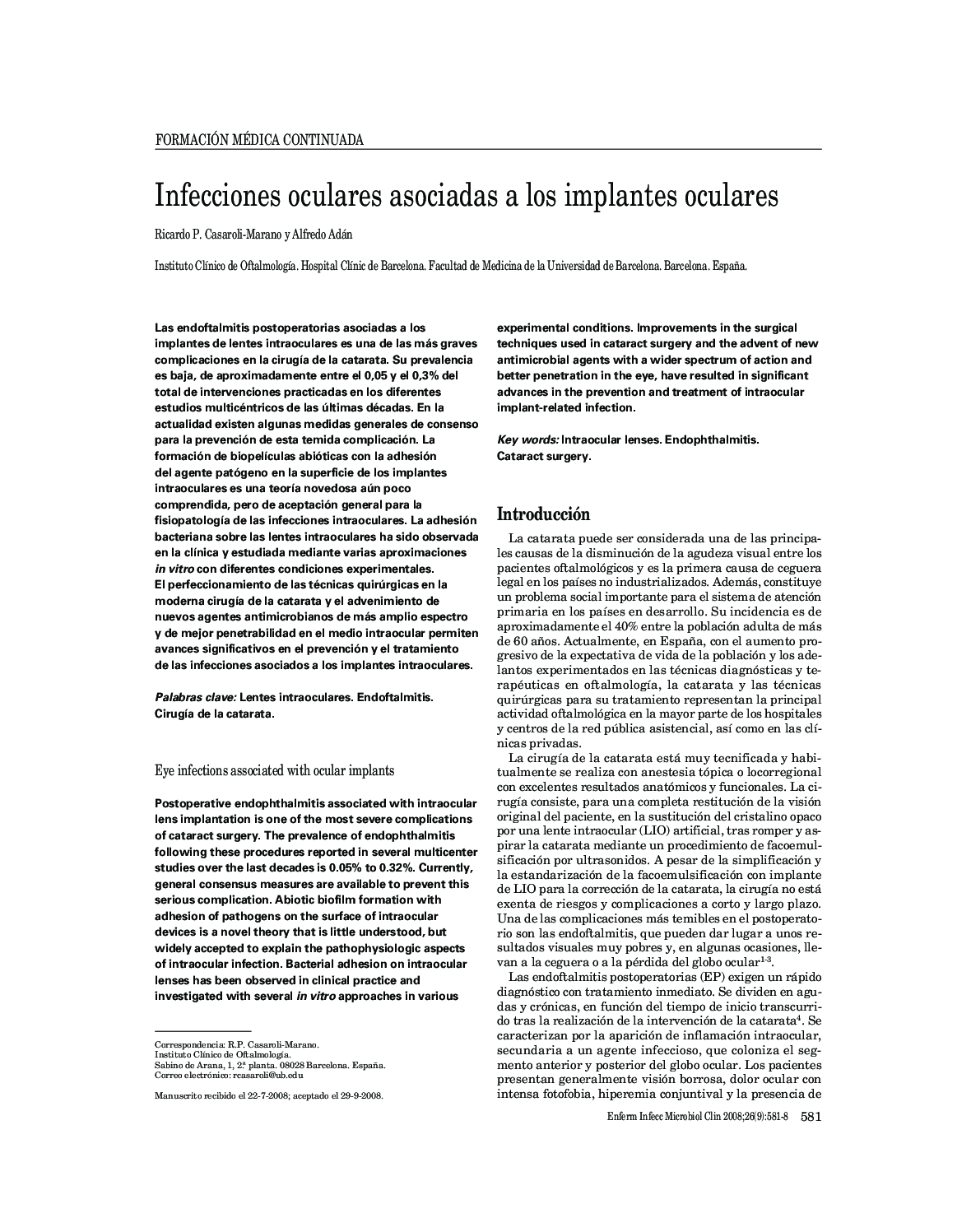| Article ID | Journal | Published Year | Pages | File Type |
|---|---|---|---|---|
| 3402436 | Enfermedades Infecciosas y Microbiología Clínica | 2008 | 8 Pages |
Abstract
Postoperative endophthalmitis associated with intraocular lens implantation is one of the most severe complications of cataract surgery. The prevalence of endophthalmitis following these procedures reported in several multicenter studies over the last decades is 0.05% to 0.32%. Currently, general consensus measures are available to prevent this serious complication. Abiotic biofilm formation with adhesion of pathogens on the surface of intraocular devices is a novel theory that is little understood, but widely accepted to explain the pathophysiologic aspects of intraocular infection. Bacterial adhesion on intraocular lenses has been observed in clinical practice and investigated with several in vitro approaches in various experimental conditions. Improvements in the surgical techniques used in cataract surgery and the advent of new antimicrobial agents with a wider spectrum of action and better penetration in the eye, have resulted in significant advances in the prevention and treatment of intraocular implant-related infection.
Related Topics
Life Sciences
Immunology and Microbiology
Microbiology
Authors
Ricardo P. Casaroli-Marano, Alfredo Adán,
